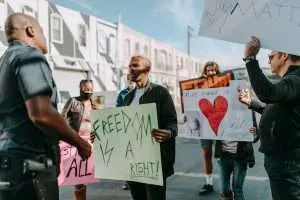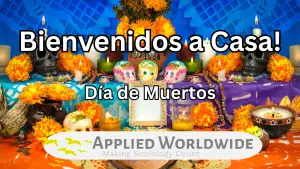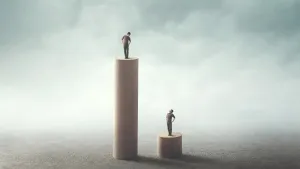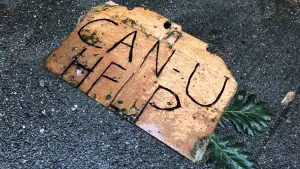2020 has been a stressful, revealing, and busy period of time for everyone. Between a worldwide pandemic, political tension in the United States, growing racial tensions exhibited through protests and shifting technological standards, there’s plenty to be wrong with the world. But a positive side effect of such an eventful year is that it will often draw out a variety of social and cultural changes and developments from the oddest places, whether it be about how we relate to our neighbor or how racial tensions exist in a post-Civil Rights era period.
But what are the most notable ideas present this year? Here’s Applied Worldwide’s 2020 Top 5 Sociological Phenomena in the United States.
1. Critical Race Theory
Likely one of the most contested and valuable ideas to enter the public consciousness is that of critical race theory, or ‘anti-racism’ as described by popular academics like Ibram Kendi. While CRT is far from a new notion, its prominence in the public eye definitely grew with the death of George Floyd, accompanied by the following protests. This drew out a lot of conversations about the role of police in society, about whether Black people are discriminated against more than other groups and a variety of other arguments.
All of these topics are controversial, and even stressful for some. But they are necessary conversations in the American context. Recent public discourse surrounding Critical Race Theory may have complicated discussion. CRT is defined as racism that is embedded and perpetuated through social institutions such as policing and law. The argument has drawn some severe criticism from those on the political right; to the point of the President filing an executive order that would restrict the teaching of such ideas to government employees.
CRT can be complex, and its presence in the public eye will likely be discussed for years to come. But 2020 is most likely the first year that many Americans learned of this sociologically influential idea.
2. Voter Turnout and Civic Engagement
Voting matters and has always mattered. This year, the act of voting was more important than ever. Not only did it see a record-high turnout among United States Citizens, but it has also seen some of the most pervasive attempts by a party to claim illegitimacy of an election. The specifics are certainly complex. But likely one of the more important developments is just that people came out to vote. They came out as a collective to perform a civic duty, and they determined their cause. While others have attempted to dissuade or claim illegitimacy, little evidence of such has arisen that stands up in court.
Results of this election will be assessed by sociologists for years to come. Questions regarding race, class, gender, and other demographics related to voter turn-out, suppression, and civic engagement related to this election will continue to be asked by sociologists.
3. Misinformation
Social media has continued to muddle our public understanding of free speech, hate speech, facts, and opinions. It has also led to questions about who is responsible for monitoring the flow of information or preventing the flow of misinformation.
Just as many have attempted to dissuade voting, so have others attempted to use this opportunity to spread false claims and deceptive facts. Whether it is the nature of the virus, the sale of remedies or the argument that certain groups desire you harm based on voting patterns, a variety of powerful individuals have attempted to harness their public profiles to spread misinformation. This has and will continue to produce discourse that is often politically charged, presenting research and other career opportunities for sociologists.
4. Pandemics and Social Structure
Just as the virus has had medical consequences, it has also impacted us socially. Large masses of people have faced lockdown and isolation. Communities and businesses have been heavily afflicted by unpredictable social structure. For some the economy has caused them to lose financial security. Others are faced with a new home-based work environment that may include caring for children. Organizations as we know them are changing in front of us. Restaurants, churches, and other community events are closing, canceling, or having to adjust in real time.
With all of these changes people are feeling more isolated than ever. It’s sparked conversations about how social media furthers said isolation and loneliness. But it is also sparking a public interest in what elements truly matter for a society to exist. Are physical churches required for religion to flourish? Are offices a necessity? These questions have a multitude of effects on people and groups and will likely get the attention of sociologists in the time after.
5. Protests
Whether they occurred in support of George Floyd, or in opposition to lockdowns; protests were a common event in 2020. Some were enormous; drawing out people all across the country in an act of solidarity. Others were smaller but vocal. And some ended up turning out to be violent. The protests can often act as a stimulant for fear; particularly if accompanied by violent parties. But they can also help shift opinion and create a different image for Americans to consider. They have also played an important part in history as an influencer of both policy and agenda.
Protests and counter protests will likely continue into 2021, but events throughout this past year have provided sociologists with plenty of fruitful data.
Moving Forward
While 2020 is finally over, that doesn’t mean these topics are going away. In a lot of ways the work of sociologists is just beginning for some of these phenomena. Researchers will find ways in which the events of 2020 can contribute to our overall body of sociological knowledge. Practitioners will help policy-makers and other organizational leaders find innovative ways to repair any destruction, and move forward in a way that will provide us all with safety and health.







